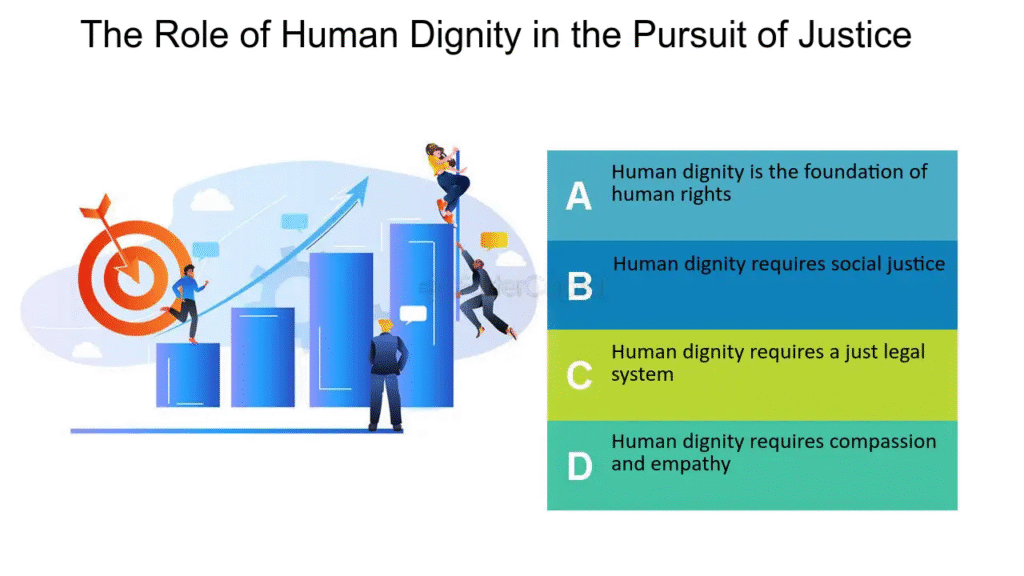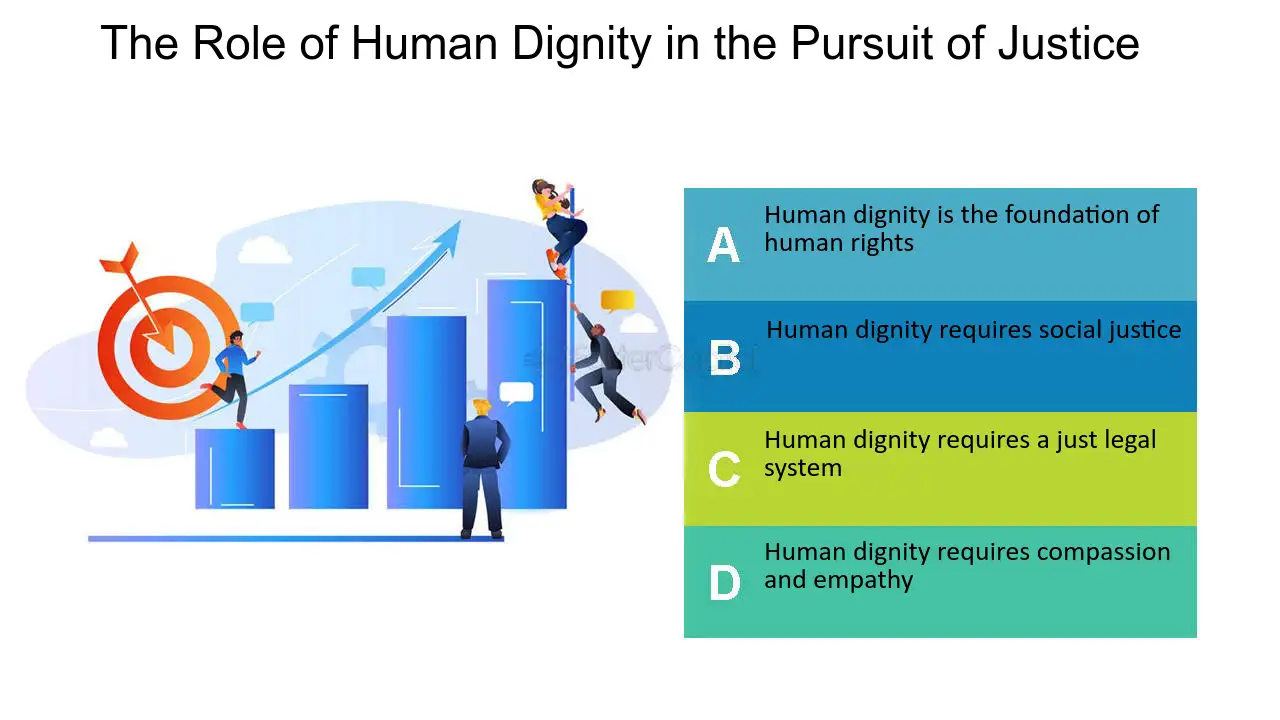
Legal ethics has traditionally been viewed through the lens of rules, codes, and professional conduct. Yet beneath the surface lies a powerful force that shapes ethical behavior: empathy. The capacity to understand and share the feelings of others, along with a deep respect for human dignity, serves as the moral compass guiding lawyers, judges, and legal professionals in their decisions. This article explores how empathy and dignity are essential to legal ethics, how they manifest in practice, and why they are critical in modern justice systems.
Understanding Empathy and Human Dignity in Legal Contexts
Empathy in the legal field refers to the conscious effort to understand a client’s, victim’s, or even adversary’s perspective, emotions, and life circumstances. It is not emotional indulgence but a cognitive and ethical tool that can guide decision-making with fairness and compassion.
Human dignity refers to the inherent worth of every individual. It demands that people are treated with respect and without degrading or dehumanizing conduct—especially in processes where their freedom, rights, or life is at stake.
Why Empathy and Dignity Matter in Legal Ethics
Legal systems are designed to protect rights and administer justice impartially. However, strictly applying rules without understanding context can result in unjust outcomes. Empathy and dignity humanize the law, reminding legal professionals that they are dealing with people, not just procedures.
Key Benefits:
- Better Client Representation: Understanding a client’s background leads to more tailored and effective legal strategies.
- Fairer Judgments: Judges guided by empathy can avoid rigid application of law that leads to injustice.
- Improved Lawyer-Client Trust: Empathetic communication fosters openness and cooperation.
- Ethical Advocacy: Attorneys can avoid tactics that exploit or dehumanize others.
Core Ethical Duties Shaped by Empathy and Dignity
Legal codes across jurisdictions emphasize core duties that are enriched when filtered through empathy and dignity:
| Ethical Duty | Traditional Approach | With Empathy & Dignity |
|---|---|---|
| Confidentiality | Protecting client information | Respecting the client’s lived experiences |
| Competence | Offering sound legal advice | Understanding client’s needs and limitations |
| Zealous Advocacy | Fighting for client’s best outcome | Avoiding harm to opposing parties unnecessarily |
| Impartiality (for judges) | Avoiding bias or conflict of interest | Considering human context of all parties |
| Respect for Rule of Law | Upholding statutes and precedents | Ensuring justice through fair application |
Real-World Examples of Empathy in Legal Practice
- Problem-Solving Courts: Drug courts and mental health courts focus on rehabilitation rather than punishment, treating offenders with empathy and dignity rather than as criminals alone.
- Restorative Justice Programs: These initiatives bring victims and offenders together, allowing healing through dialogue—a direct application of empathy in conflict resolution.
- Legal Aid and Pro Bono Work: Lawyers who serve underprivileged clients often draw from empathy to bridge social and cultural gaps, offering compassionate legal help.
- Human Rights Law: Advocates and international courts incorporate the principle of dignity when fighting for marginalized groups—be it refugees, the disabled, or minority communities.
Challenges in Practicing Empathy in Law
Despite its importance, empathy in legal settings can be difficult to maintain due to:
- Time and Caseload Pressures: Overworked legal professionals may struggle to deeply engage with every client’s story.
- Emotional Burnout: Continual exposure to trauma can lead to compassion fatigue.
- Institutional Constraints: Legal culture often prioritizes objectivity and distance over emotional insight.
- Fear of Bias: Some fear empathy may cloud judgment or interfere with impartiality.
Thus, training and structural reform are essential to ensure empathy is embedded without compromising fairness.
Training and Cultivating Empathy in Legal Education
To integrate empathy into legal ethics, law schools and professional training programs are incorporating:
- Storytelling Exercises: Engaging with clients’ narratives to build emotional intelligence.
- Role-Reversal Activities: Encouraging lawyers to see cases from the other side’s point of view.
- Clinical Legal Education: Real-world exposure to social justice work enhances understanding of diverse human experiences.
- Ethics Workshops: Focused discussions on moral dilemmas and the role of human dignity.
Overview Table: Empathy and Human Dignity in Legal Ethics
| Dimension | Definition | Practical Application | Ethical Impact | Example in Action | Public Value |
|---|---|---|---|---|---|
| Empathy | Understanding others’ feelings | Listening to client experiences | Builds trust, ensures tailored help | Legal aid for abuse survivors | Fairer legal representation |
| Human Dignity | Respect for intrinsic human worth | Avoiding dehumanizing legal tactics | Protects rights and integrity | UN Human Rights Court rulings | Upholds justice and equality |
| Compassionate Judging | Judging with emotional awareness | Considering mitigating circumstances | Promotes rehabilitation over punishment | Drug rehabilitation court | Reduces repeat offenses |
| Restorative Justice | Healing through understanding | Dialogue between victim and offender | Encourages accountability and healing | Youth criminal programs | Strengthens community bonds |
| Legal Education Reform | Teaching emotional intelligence | Role play, client interviews | Empowers ethical, empathetic lawyers | Law school clinical programs | Modernizes the legal profession |
| Lawyer-Client Relations | Emotional connection and respect | Honesty, patience, and cultural sensitivity | Strengthens ethical conduct | Refugee advocacy | Builds trust in legal institutions |
3 Best One-Line FAQs
Q1: Why is empathy important in legal ethics?
Empathy helps legal professionals make fair, human-centered decisions that go beyond procedural correctness.
Q2: How does human dignity affect courtroom conduct?
It ensures all individuals are treated with respect, regardless of status, background, or accusation.
Q3: Can empathy interfere with legal objectivity?
When balanced correctly, empathy enhances fairness without compromising impartiality.
Conclusion
The legal profession is not just about laws—it’s about people. Empathy and human dignity bring moral depth to legal ethics, encouraging professionals to pursue justice with compassion. While rules provide structure, it is empathy that brings humanity to the system. As legal systems evolve, embracing these values is not just noble—it is necessary for justice to be truly served.

